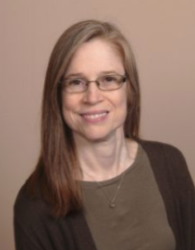
Last month, Rhonda Pfaltzgraff-Carlson from Eastern Hills Friends gave a presentation at the Cincinnati Friends meetinghouse on bringing more spiritual life into the workplace. She began by describing how she became aware of the calling that led to her new ministry, christened Light for Organizations. After getting a Certificate of Spiritual Nurture from the School of the Spirit, it occurred to her that she could develop a new way to use her MA in Theology and PhD in Industrial Organizational Psychology.
She described her services to organizations in general and to leaders of those organizations in particular. Spiritual Discernment Services, Spiritual Direction Groups, and Organizational Spiritual Accompaniment are offered to interested organizations to help them to gain insight and direction from God. Rather than wait for a crisis to happen, the ideal for spiritual discernment is to percolate spiritual concepts throughout the organization gradually. The goal is to enable the organizations to make better choices in their use of people and resources. Ideally, greater access to God-influenced ideas should lead to new, creative, and compassionate solutions all around.
Although Rhonda mentioned work teams occasionally in her presentation, all three services that she described appeared to be targeted toward the heads of the organizations rather than to the average employee: a rather top-down approach to organizational spirituality. The very use of the phrase spiritual direction gave the presentation a decidedly Ignatian flavor—at least to me, a person who happens to be a graduate from a Jesuit university. There’s nothing necessarily wrong with this; I’m just pointing out how terminology might or might not affect how the spiritual process proceeds.
In discussing the presentation afterwards, some attenders noted the importance of Rhonda’s idea of bringing more spirituality into secular organizations, and even into religious ones, which universally seem to emphasize just one all-consuming goal: raising the bottom line. During the Q&A session, credit was given for the courage and integrity demonstrated by promoting this kind of mission. The jury seemed to still be out, however, about how easy or how practical Rhonda’s particular approach to spirituality in the workplace might be. Questions about religious versus secular “values-based” language came up. For example, how secular can your mission statement be without losing its spiritual sense? Conversely, how religious can you sound without seeming too sectarian to a diverse population?
Finally, there is the biggest question of all: how will Rhonda persuade industry leaders that her research—which claims that there are measurable gains to be had by using her novel approach—actually is worth trying? How will she convince organizational leaders that “that of God” in their corporate spiritual life can ultimately make their enterprises healthier, wealthier, and wiser? I sincerely hope that she will. We need a better answer than the Walmarts and the Amazons of the corporate world. We need a way of running our work enterprises that expands human spirits, not just shareholder profits.

Ray,
Thanks for your sharing your perspectives! I enjoyed our meeting and hope our paths cross again soon.
Rhonda